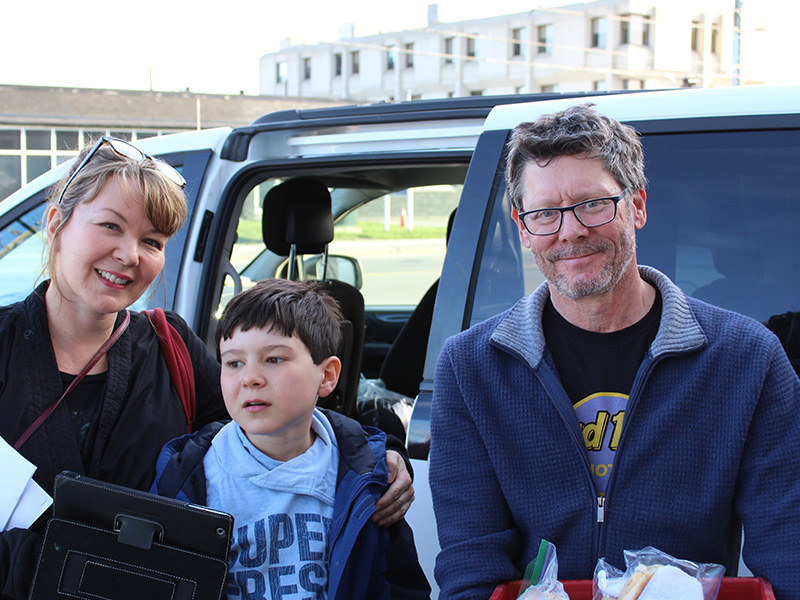A growing number of synagogues are joining in on the Shabbat Itanu initiative, an annual, citywide event in Toronto that focuses on making synagogues more accessible to those who are differently abled.
Since 2009, shuls throughout the Greater Toronto Area have committed to holding inclusion-themed Shabbat services and programs to highlight the need for greater inclusion and accessibility.
Liviya Mendelsohn, the Miles Nadal Jewish Community Centre’s (MNJCC) manager of accessibility and inclusion, said there are 32 institutions taking part this year, up from 23 in 2016.
“It’s Chabad, Orthodox, Conservative, Reform, Renewal, Reconstructionist, Secular Humanist, LGBTQ – it’s everybody,” Mendelsohn said. “It’s done independently at each shul, with the culture and observance style and programming style of each shul.”
READ: FESTIVAL SHOWCASES DISABILITY AND DEAF CULTURES
In late April, Beth Avraham Yoseph of Toronto Congregation, in partnership with DANI, Reena, Yachad and Zareinu Educational Centre, hosted a Shabbaton with children and adults with disabilities, as well as a panel discussion titled, “What’s Next After Shabbat Itanu?” with Rabbi Reuven Bulka, Rabbi Aaron Greenberg, Rabbi Zev Spitz and Rabbi Chaim Kakon, who is head of Yeshivas Nefesh Dovid, an international school for the hard of hearing.
In early May, Ely Golden, who is graduating this year from Anne and Max Tanenbam Community Hebrew Academy of Toronto, spoke at Beth Tzedec Congregation about his personal experience with inclusivity at Jewish institutions.
The Bernstein Chapel in the MNJCC, which is wheelchair accessible and offers large-print prayer books for the visually impaired, hosted an event, during which Rabbi Frank Annette Gruno, a disability rights advocate and accessibility designer, gave a dvar Torah. Meanwhile, at Darchei Noam, Mendelsohn presented about community programs for children and adults with special needs.
The Toronto Partnership Minyan (TPM) program focused “on the values of inclusion, through self-assessment, outreach, drashim and sermons, poetry, text study, programming and more.”
TPM also hosted a lunch-and-learn to discuss inclusion in the community, and welcomed speaker Zachary Perlmutter, a graduate of the Jewish day school system, whose piece, “Taking a Closer Look at Invisible Disabilities,” was recently published in The CJN.
At Beth Tikvah Synagogue, Maayan Ziv – an activist, photographer and entrepreneur living with muscular dystrophy – spoke from the bimah. In 2015, Ziv founded AccessNow, a crowdsourcing app that determines the accessibility of places all over the world.
On May 11, Reena will hold an event offering career advice for job seekers with disabilities, and on May 12, Beth Emeth Bais Yehuda Synagogue will honour their Kadima program participants, leaders and volunteers, followed by a special kiddush.
READ: MOM SAYS SON’S DISABILITY IS ‘OUR NORMAL’
Mendelsohn said that part of the programing also includes screenings and films by and about people with disabilities. For example, on May 17, there will be a screening of a short film at the Al Green Theatre called Adam’s Bar Mitzvah, starring Adam Wolfond, a young social justice advocate who is autistic, non-verbal and requires an iPad to communicate.
“He and his mom will be there and they’ll be doing a question-and-answer afterward,” Mendelsohn explained.
Mendelsohn said that while each institution is offering different programing, all are united in their determination to bring more attention to the concepts of inclusion and accessibility.
“Shabbat Itanu is really a time when we can focus on inclusive ritual in our own shul communities.… It’s an opportunity to do some self-assessment as a community. It’s an opportunity to celebrate where we are at and also really push to better meet the needs to remove barriers.”









